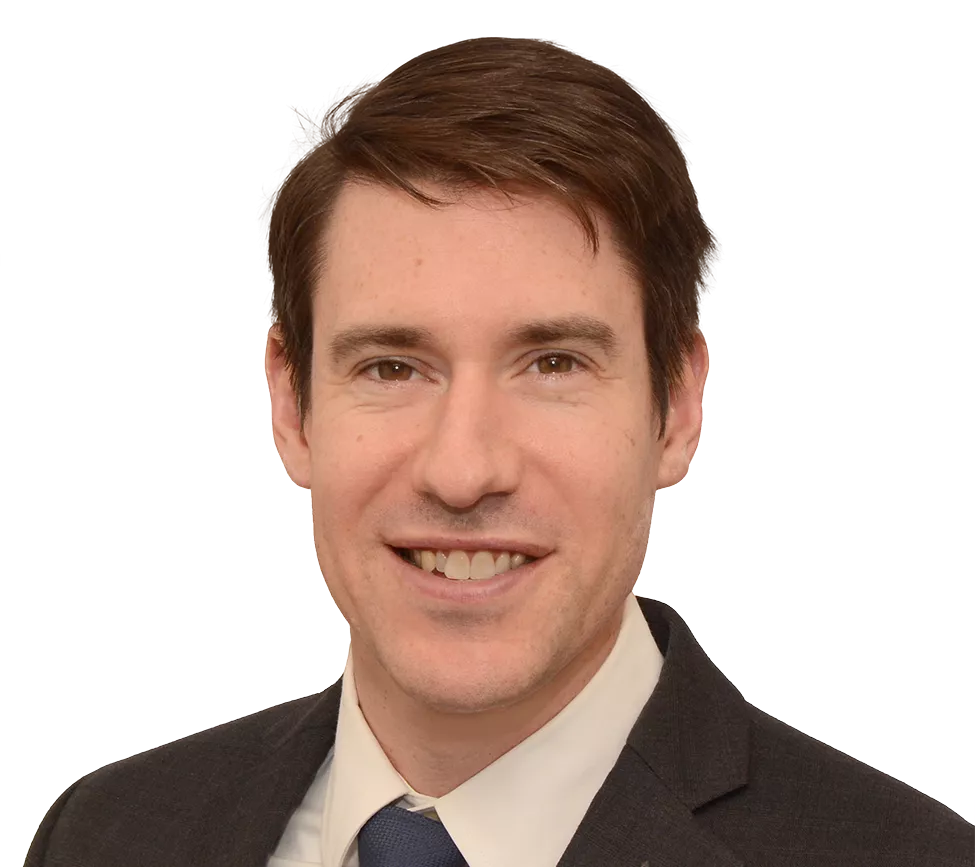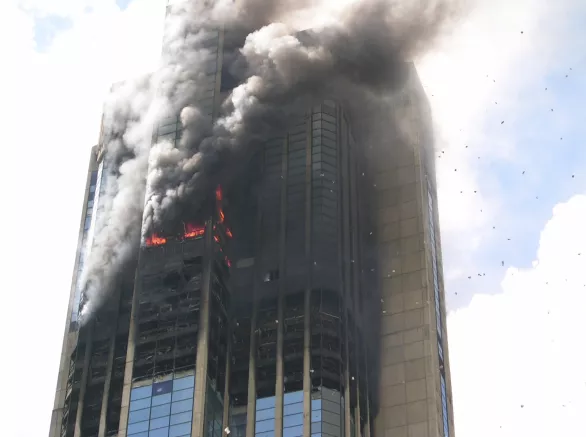

- Ph.D., Fire Protection Engineering, Worcester Polytechnic Institute, 2010
- M.S., Fire Protection Engineering, Worcester Polytechnic Institute, 2004
- B.S., Mechanical Engineering, Worcester Polytechnic Institute, 2003
- Professional Engineer Fire, California, #1785
- Certified Fire and Explosion Investigator (CFEI)
- CFI Trainer.Net
- "A Ventilation-Focused Approach to the Impact of Building Structures and Systems on Fire Development" (4 hour tested)
- "An Analysis of The Station Nightclub Fire" (4 hour tested)
- "Arc Mapping Basics" (4 hour tested)
- "Critical Thinking Solves Cases" (4 hour tested)
- "Digital Photography and the Fire Investigator" (4 hour tested)
- "DNA" (3 hour tested)
- "Documenting the Event" (4 hour tested)
- "Effective Investigation and Testimony" (3 hour tested)
- "Electrical Safety" (3 hour tested)
- "Ethics and the Fire Investigator" (3 hour tested)
- "NFPA1033 and Your Career" (2 hour tested)
- "Explosion Dynamics" (4 hour tested)
- "Introduction to Fire Dynamics and Modeling" (4 hour tested)
- "Fire Protection Systems" (3 hours tested)
- "Basic Electricity" (4 hours tested)
- "Residential Natural Gas Systems" (3 hours tested)
- "Investigating Natural Gas Systems" (3 hours tested)
- "Wildland Fires Investigation (5 hours tested)
- "Process of Elimination" (3 hours tested)
- "Fundamentals of Residential Building Construction" (3 hours tested)
- "Fire Investigator Scene Safety" (3 hours tested)
- "Introduction to Youth-Set Fires" (3 hours tested)
- "Preparation for the Marine Fire Scene" (4 hours tested)
- "Managing Complex Fire Scene Investigations" (4 hours tested)
- "Investigating Motor Vehicle Fires" (4 hours tested)
- "Residential Electrical Systems" (4 hours tested)
- "The Scientific Method for Fire and Explosion Investigation" (3 hours tested)
- "Vacant and Abandoned Buildings: Hazards and Solutions" (4 hours tested)
- Principal Member: NFPA Technical Committee on National Fuel Gas Code (NFG-AAA), responsible for NFPA 54: National Fuel Gas Code, 2021-present.
- Principal Member: NFPA Technical Committee on Fuel Gas Warning Equipment (FWE-AAA), responsible for NFPA 715: Standard for the Installation of Fuel Gases Detection and Warning Equipment, 2019-Present.
- Principal Member: NFPA Technical Committee on Aerosol Products (AER-AAA), responsible for NFPA 30B: Code for the Manufacture and Storage of Aerosol Products, 2011-present.
- Principal Member: NFPA Technical Committee on Automotive and Marine Service Stations (AUV-AAA), responsible for NFPA 30A: Code for Motor Fuel Dispensing Facilities and Repair Garages, 2011-present.
- Principal Member: NFPA Technical Committee on Vehicular Alternative Fuel Systems (VAF-AAA), responsible for NFPA 52: Vehicular Natural Gas Fuel Systems Code, 2014-present.
- Principal Member: NFPA Technical Committee on Exposure Fire Protection (EXR-AAA), responsible for NFPA 80A: Recommended Practice for Protection of Buildings from Exterior Fire Exposures, 2015-present.
- Principal Member: NFPA Technical Committee on Wildland Fire Fighting Protective Clothing and Equipment (FAE-AAA), responsible for NFPA 1877: Standard on Selection, Care, and Maintenance of Wildland Fire Fighting Clothing and Equipment and NFPA 1977: Standard on Protective Clothing and Equipment for Wildland Fire Fighting, 2016-present.
- Alternate Member: NFPA Technical Committee on Flash Fire Protective Garments (FLG-AAA), responsible for NFPA 2112: Standard on Flame-Resistant Garments for Protection of Industrial Personnel Against Flash Fire and NFPA 2113: Standard on Selection, Care, Use, and Maintenance of Flame-Resistant Garments for Protection of Industrial Personnel Against Short-Duration Thermal Exposures, 2016-present.
- Alternate Member: NFPA Technical Committee on Hot Work Operations (HWO-AAA), responsible for NFPA 51B Standard for Fire Prevention During Welding, Cutting, and Other Hot Work, 2017-Present.
- Former Member: NFPA Technical Committee on Hazard and Risk of Contents and Furnishings (HAR-AAA), responsible for NFPA 555 Guide on Methods for Evaluating Potential for Room Flashover, NFPA 556 Guide on Methods for Evaluating Fire Hazard to Occupants of Passenger Road Vehicles, and NFPA 557 Standard Fire Loads for Engineering Design of Structural Fire Resistance in Buildings. (Representing the Upholstered Furniture Action Council), 2016-2018.
- Former Member: NFPA Technical Committee on Motion Picture and Television Industry (MOI-AAA), responsible for NFPA 140: Standard on Motion Picture and Television Production Studio Soundstages, Approved Production Facilities, and Production Locations, 2015-2021.
- Society of Fire Protection Engineers—SFPE
- National Fire Protection Association—NFPA
- International Association of Arson Investigators—IAAI
- National Association of Fire Investigators—NAFI
- American Gas Association (member - Piping Materials Committee)
Dr. Sipe is a Principal Engineer in Exponent's Thermal Sciences practice. He specializes in providing origin and cause determinations for fires and explosions, evaluating the fire performance of materials and products, analyzing the performance of fire protection engineering systems, performing building and fire code assessments, performing computer fire modeling, and providing technical consulting services to natural gas pipeline operators and gas and electric utilities.
Dr. Sipe is actively involved in the National Fire Protection Association (NFPA) code making process. He performs origin and cause determinations of fires, explosions, and other thermal events. He has performed structure fire investigations involving residential, industrial, commercial, and storage occupancies; marine fire investigations involving product tankers, container ships, and recreational ships; vehicle fire investigations involving limousines, heavy equipment, electric bikes, and off road vehicles; and wildland fire investigations.
Dr. Sipe has experience developing and performing fire tests, including tests in accordance with standard test methods such as those published by the ASTM, NFPA, ISO, UL, API, and CFR as well as customized experimental fire test procedures. He has experience evaluating the ignition and fire performance of industrial and consumer products and various materials under a wide range of failure conditions. He has experience evaluating flame resistant fabrics and personal protective equipment (PPE), including firefighter ensembles, and evaluating scald burns and thermal injuries from fires and molten metals. Dr. Sipe has provided expert witness testimony regarding fire dynamics and flame spread.
Dr. Sipe analyzes active and passive building fire protection and life safety systems, including wet and dry pipe sprinkler systems, commercial cooking fire protection, wet and dry chemical systems, gaseous fire protection systems, structural fire protection, and fire alarm systems. He has experience investigating sprinkler freezing events and inadvertent sprinkler operations. He has experience performing building and fire code evaluations for compliance with codes and standards published by the NFPA and International Code Council (ICC). He has experience performing building code evaluations of railway stations, and has testified on such matters in international arbitration proceedings. He has performed dust explosion hazard calculations for industrial facilities. Dr. Sipe has experience solving complex fire-related problems by developing computer modeling solutions. He also has experience using computational fluid dynamics (CFD) software, such as Fire Dynamics Simulator (FDS) and Fluent, and computer zone models, such as the Consolidated Model of Fire and Smoke Transport (CFAST). He has experience instructing graduate students on the proper use of the computer fire models FDS and CFAST, and teaching the development and implementation of customized computer fire models. Dr. Sipe has experience performing code assessments of facilities that assemble, test, and store lithium ion battery packs for vehicle applications.
Dr. Sipe has experience providing technical consulting services to gas and electric utilities. He has experience consulting on natural gas pipeline safety and integrity management issues including a multi-year effort to assist a large gas and electric utility to validate the maximum allowable operating pressure (MAOP) of its gas pipelines. He has experience with the development of pipeline features lists (PFLs), quality control methods for ensuring database accuracy, and evaluating methods for resolving unknown pipeline features. He has investigated and provided engineering assessments for natural gas transmission pipeline ruptures, residential house explosions associated with natural gas pipeline leaks, subsurface gas migration, and arc flash events. He consults with the oil and gas industry on pipeline asset management including geographical information systems for pipeline data. He has also performed wildland fire investigations for electric utilities.
Prior to joining Exponent, Dr. Sipe was a research assistant and teaching assistant at Worcester Polytechnic Institute (WPI). At WPI, he conducted research to investigate the effects of fire sprinkler wetting by means of a numerical model for heat and mass transfer in porous media, and experimental validation using the cone calorimeter. He also conducted research, sponsored by the U.S. Navy, to investigate the performance of firefighter's protective clothing through the design and fabrication of heat flux transducers and the development of skin burn prediction algorithms for an instrumented mannequin test. As a teaching assistant at WPI, Dr. Sipe instructed graduate students on topics that included fire protection systems, fire detection, and fire dynamics.
Joel's recent insights
